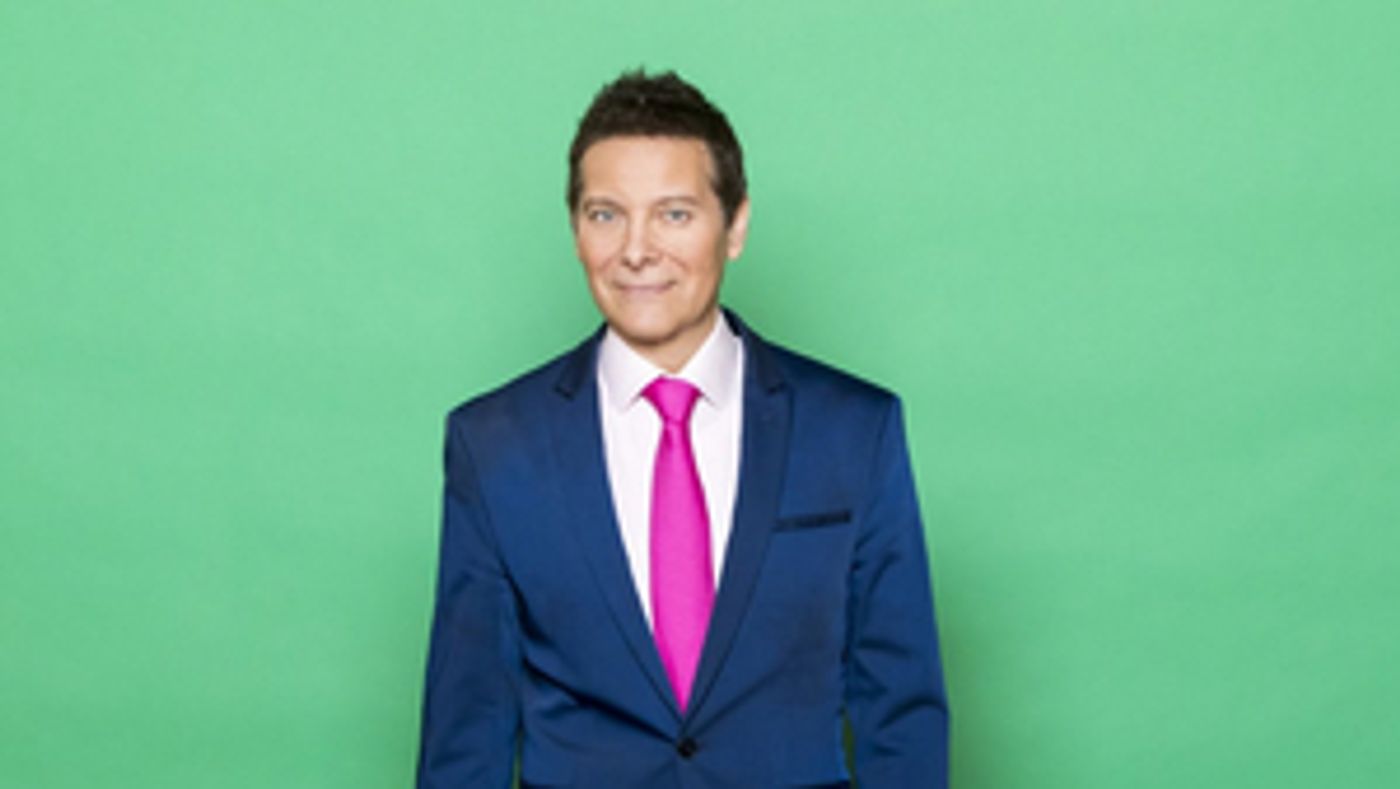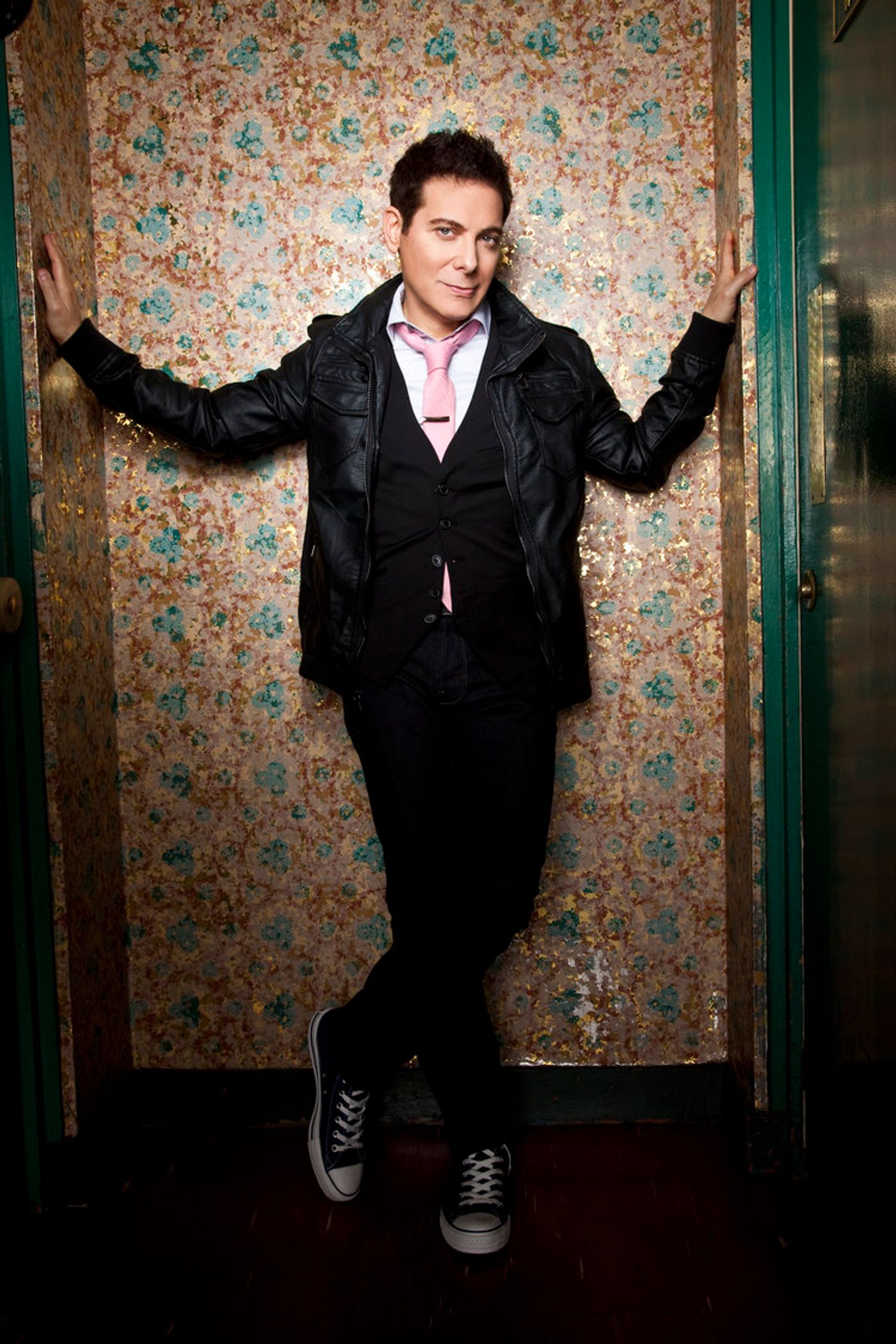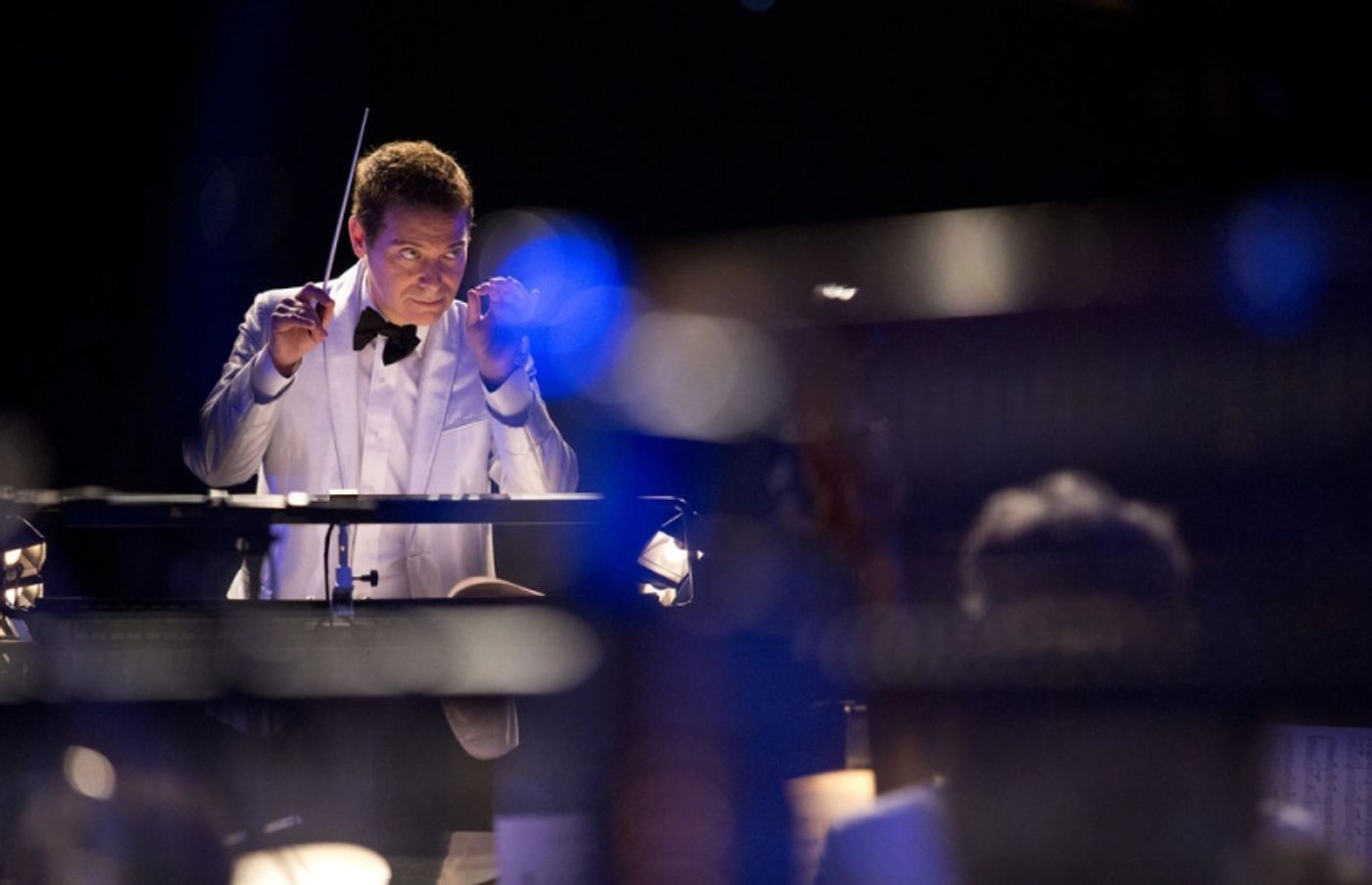Interview: Michael Feinstein of MICHAEL FEINSTEIN: SUMMERTIME SWING! Talks About The Great American Songbook and His Return to Feinstein's 54 Below
Michael Feinstein Plays Feinstein's 54 Below Aug. 24-Sep. 6

When it comes to the art of cabaret, no one has been more successful or more prolific than Michael Feinstein. His influence is literally everywhere you look. In three decades he has gone from a piano bar performer to one of the most driving forces in the music business, the impresario of a cabaret empire. He is an ambassador for the Great American Songbook and his work as an archivist of rare and forgotten scores is unparalleled.
He is the principal pops conductor of the Pasadena Symphony and the artistic director of the Palladium Center for the Performing Arts in Carmel, Indiana. In addition, he is the director of the Jazz and Popular Song Series at New York's Jazz at Lincoln Center. He is the author of The Gershwin's and Me, an LA Times bestseller from Simon & Schuster. He was nominated for an Emmy for his television special Michael Feinstein- The Sinatra Legacy as well as receiving five Grammy nominations.
He serves on the Library of Congress's National Recording Preservation Board. He created The Great American Songbook Foundation which is dedicated to celebrating and preserving the art form through educational programs, Masterclasses, and the annual High School Songbook Academy. He is also the owner of a series of cabaret clubs around the country including Feinstein's 54 Below in New York, where next week he will begin a two-week run of his new show Michael Feinstein: SUMMERTIME SWING!
I was lucky enough to get a few moments to talk to Feinstein about his new show and the Great American Songbook.
I'm so glad that you were able to make time for me this morning. I want to ask about your upcoming show, SUMMERTIME SWING! at 54 Below. We're all very excited that you are back in New York. Is this your first engagement at 54 Below since it has been open again?
Yes.
Can you tell the fans what they can expect? Are you concentrating on specific composers or specific musical themes in this show?
For me, it's a celebration of returning to musical life. And therefore I've assembled a "Best Of Michael Feinstein" program. We have a number of different elements. Of course, there will be some "swingy" things to fulfill the promise of the title. I will have a request section, so people can request something they may wish to hear whether it's connected with me or not. I have some songs that I feel are illustrative of the times and that may remind us of the joy of music-making and camaraderie.
Boy, do we need that now.
Yeah. I'm also going to do a Sinatra medley that I put together a few years ago. I performed it with the Pasadena Pops last weekend in a concert for 6,000 people. The response was so huge that we're putting it into this show. Oh, and I also wrote a new song with Alan Bergman, who is 95, I think. I'm going to include that song because it turned out well, and I like his lyrics, of course. And then other standards by Lerner and Loewe, Hugh Martin and Ralph Blaine, Jimmy McHugh. It will be a grab bag of things I think will be soothing to the musical soul.
I have a few questions about your career in general. You have always been more than an entertainer. You describe yourself as an ambassador for the Great American Songbook. I think that's absolutely true. That seems to be a term that means something different to different people. How would you define the parameters of the Great American Songbook?
It's interesting. The accolade "ambassador of the Great American Songbook" was something that was attached to me. Maybe it's true. It is my passion. As far as the definition of the Great American Songbook, I think that it probably begins in the 20th century. Certainly, there are songs from the 1800s that are enduring, but for me, the definition is a song that transcends the period in which it was created, is known collectively to everybody, and has relevance in today's time. For example, "Over the Rainbow" or "Singin' in the Rain" or "As Time Goes By", or Billy Joel or Carole King or The Beatles. Any song that endures and has a life that transcends the time it was written in becomes a standard. And so the Great American Songbook is ever-evolving. I believe that there are songs being created today, and if we're collectively sitting at home listening to them in 25 years, they will become standards. Of course, it used to be that a song like "Over the Rainbow" was recorded by hundreds of different people. And that's one of the reasons that it endures. Now, most people listen to music and it's a single performance, a single recording that they know of a song. But sometimes a song will be covered by other people and will have, let's say, a wider wingspan.
I like that definition. It's more inclusive than some of the definitions I've heard. I'm glad to hear you include writers like Carole King and Billy Joel or Dolly Parton, who are still writing songs that will live after them. I talked to Billy Stritch the other day, who I think has the same sort of philosophy that you have. I asked him why he thought the work of preserving the Great American Songbook was so important. What are your thoughts on that?
To me, the Great American Song is comparable to Shakespeare, Beethoven, or the Italian Renaissance in that something very special was created in that period that will never happen again. We don't look at a Shakespeare play and say "Oh, that's old." We look at it and say "Isn't that amazing? That's timeless and I can relate to it." The songs that were created in that golden age are extraordinary, not only for the sheer volume of creation but the quality of the lyrics and the cleverness and the innovation of the melodies and harmonies. They are so exquisite in their creation that they still speak to us. Not intellectually, emotionally. And people don't need to know that the craft is so great. These songwriters captured a sense of the human condition that is universal and therefore enduring.

Yes. I think that's absolutely true. You are intimately associated with the music of the Gershwins, of course. Do you have other favorite composers who particularly speak to you?
Yes, there are many. Because there are thousands of songwriters. I gravitate to the lyrics of Marshall Barer, who should have been as well known as Lorenz Hart. Marshall was a favorite lyricist of Stephen Sondheim. He is basically known for having written the lyrics to Once Upon a Mattress with Mary Rodgers. I met Marshall later in his life and he was one of the most exquisitely gifted songwriters I ever knew. I'll be including something by him in this program. His songs are just brilliant and funny and deeply moving. So Marshall's work is something that I always try to champion when I'm able.
There are so many songwriters whose works are meaningful. Burton Lane has always been important to me. Hugh Martin and Johnny Green. Johnny Green is known for writing a handful of songs, "Body, and Soul," "I Cover the Waterfront," "You're Mine, You," "Coquette". But Johnny Green is another songwriter whose works are exquisite and are completely forgotten. Before he died, he asked me if I thought his work would endure. And I told him that I felt that it would because of the handful of standards. But again, like many other writers, he wrote so many things that never saw the light of day. You can take any songwriter, no matter how famous, whether it's Cole Porter or Carole King or Billy Joel, they all have songs that are lesser-known that are equally worthy, but have not found an audience.
I love that so many modern artists are picking up these tunes. People like Lady Gaga, who will sing a standard from the thirties and keeps that tradition alive. If you were speaking to a young cabaret artist who wanted to have a career like yours, what would you say they need besides the obvious talent and tenacity?
Well, God help them if they want to start a career like mine. I started an organization called the Great American Songbook Foundation. While it was initially formed for the purpose of preserving physical artifacts, we very quickly developed a program, an Annual High School Songbook Academy to acquaint young people with this body of work. It has been life-changing for me as well as the participants. These young people relate to this music on a level that is wondrous to behold.
But as far as advice, any art gives the opportunity for the performer and the creator and the participating audience to get to know ourselves better. Music, art, acting groups, it's all a means of connecting to the essence, the commonality of who we are as people. When we are open to deep self-examination, our ability to interpret a song becomes universal. And so the thing that I work on first with anybody who wants to sing a classic song is finding who they are in the song and helping them to honestly interpret the words they are singing. Because you can either sing a song in a perfunctory fashion, or you can perform a piece of music from a place of telling a story and living a three-act play through the thirty-two bars of a song. And so, it's special for young people to find a deeper connection to the music and lyric.

Of course, the technique is also important, but so much of that can come in the repetition of doing. The psychological part is the more difficult aspect of performing. It's how to connect with the audience and having the courage to bear one's soul without fear and trust that you will be accepted for who you are. I find that most young people have a reticence or a fear of showing who they are to an audience. And that is understandable because I certainly had that when I was younger, but that is the thing that will distinguish them from any other performer.
That is lovely advice. Thank you for taking the time to talk to me today. We're all looking forward to the new show.
Thank you.

Michael Feinstein: SUMMERTIME SWING is performing at Feinstein's 54 Below Aug. 26-Sep. 6. Tickets are available at 54below.com or by calling 646/476-3551. For more information about Michael Feinstein, please visit michaelfeinstein.com or follow him @MichaelFeinstei on Twitter or @michaelfeinsteinsings on Instagram.
Videos

